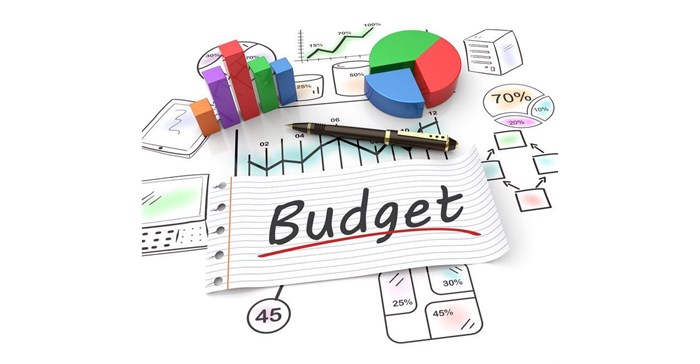On 11 November Finance Minister Enoch Godongwana will present the Medium Term Budget Policy Statement (MTBPS) in parliament. However FNB analysts* don't expect this budget to signal any deviation from the current fiscal consolidation path.
Instead, they say the budget could highlight progress on critical policy considerations such as the Public Procurement Bill and implementation of the Zero-Based Budgeting framework.
Despite the impaired revenue base over the years, the current fiscal year’s revenue performance is primarily underpinned by elevated commodity prices and pent-up demand created by last year’s lockdown restrictions.
YTD (April to September) revenue performance
According to their (average and ARIMA-based) estimates and accounting for growth dynamics, the year-to-date (YTD) performance of monthly tax revenue signals a modest revenue outperformance of around R110bn for the current fiscal year, primarily assisted by corporate income tax revenue, which has benefited from elevated commodity prices and terms of trade.
Consequently, the budget deficit should be around R373bn (6.1% of GDP) for 2021/22.
YTD gross tax revenue is up by 38.9% y/y relative to the full-year 2021 budget projection of 12.6% year-on-year (y/y).
Specifically, major tax revenue categories have performed as follows:
- Personal income tax (PIT; 38% of gross tax revenue) revenue is up by 18.1% YTD compared to the corresponding period in 2020 and by 3.9% compared to 2019, pre-pandemic. At 18.1% y/y, PIT revenue is ahead of the 2021 Budget review projection of 7% for the current 2021/22 fiscal year. YTD 50.1% of PIT revenue has been collected compared to 45% in the corresponding period last year. The recovery in compensation of employees to slightly above pre-pandemic levels should boost PIT revenue in the current fiscal year despite persisting labour market weaknesses.
- Corporate income tax (CIT; 17.2% of gross tax revenue) revenue has largely benefited from elevated commodity prices and is up significantly by 101.3% YTD compared to the corresponding period last year and up by 50.3% compared to the corresponding period in 2019. The 2021 budget review projected CIT revenue growth of 12.9%. About 71.4% of CIT revenue has been collected compared to 37.4% in last year’s corresponding period.
- Value-added Tax (VAT; 26.6% of gross tax revenue) revenue is up by 28.8% YTD compared to the same period last year and by 9.5% compared to the corresponding period in 2019. VAT revenue growth of 14.1% for the current fiscal year had been projected at the 2021 budget review. YTD 47.5% of VAT revenue has been collected compared to 41.2% in the corresponding period last year.
Short-lived revenue performance
Overall, the modest revenue cyclical growth performance is underpinned by the combination of a pandemic-induced low base of 2020, a boost from elevated commodity prices and higher export earnings, and the general economic recovery from further easing of lockdown restrictions.
The long-existing narrowing of the revenue base, which the pandemic has now worsened, means that the cyclical revenue performance will be short-lived in the absence of accelerated growth enhancing reforms and when commodity prices moderate from the current elevated levels.
SARB Governor Lesetja Kganyago also cautioned at the BIS-SARB Centenary Conference that, like in the previous cycles, the current commodity price boom, which has boosted corporate income tax revenue, would not be long-lived.
On the expenditure side, the 2021 budget review had expected the main budget expenditure to grow by 1.7% in the current fiscal year.
However, preliminary outcomes show that expenditure is likely to grow by 2.6% due to lower expenditure in the previous fiscal year than initially assumed.
YTD main budget expenditure is up by 7.6% y/y, reflecting YTD growth of 10.8% y/y of expenditure (appropriation by vote) and 14.0% y/y growth of debt-service cost.
Year to date 42.7% of the budgeted total main expenditure of R1 834bn has been spent compared to 40.7% in the corresponding period last year.
Treasury 2021 budget projections
For the fiscal year 2020/21, Treasury expected a main budget deficit of R603 billion (12.3% of GDP).
Preliminary data indicates that the deficit now looks to have been narrower at around R553bn (9.9% of GDP) amid better-than-expected revenue and GDP outcomes and the recent national accounts benchmarking cycle, which showed that the size of nominal GDP (the denominator) is now larger compared to the previous benchmarking cycle.
This improved starting point means that projections for the subsequent fiscal years may look better than those at the 2021 Budget review.
The higher GDP size would also reflect a reduced gross government debt ratio that Treasury had predicted, at the 2021 budget review, to peak at 88.9% of GDP in 2025/26.
From a sovereign ratings and financial markets perspective, it will be critical for Treasury to credibly demonstrate that it is still able to have the government gross debt ratio peaking over the forecast horizon.
Worryingly, the IMF’s latest World Economic Outlook shows that SA’s gross debt ratio will not stabilise until 2026, highlighting fiscal credibility and implementation risks amid pressing social issues and wage bill dispute.
*FNB analysts: Mamello Matikinca-Ngwenya, Siphamandla Mkhwanazi, Thanda Sithole, Koketso Mano








































